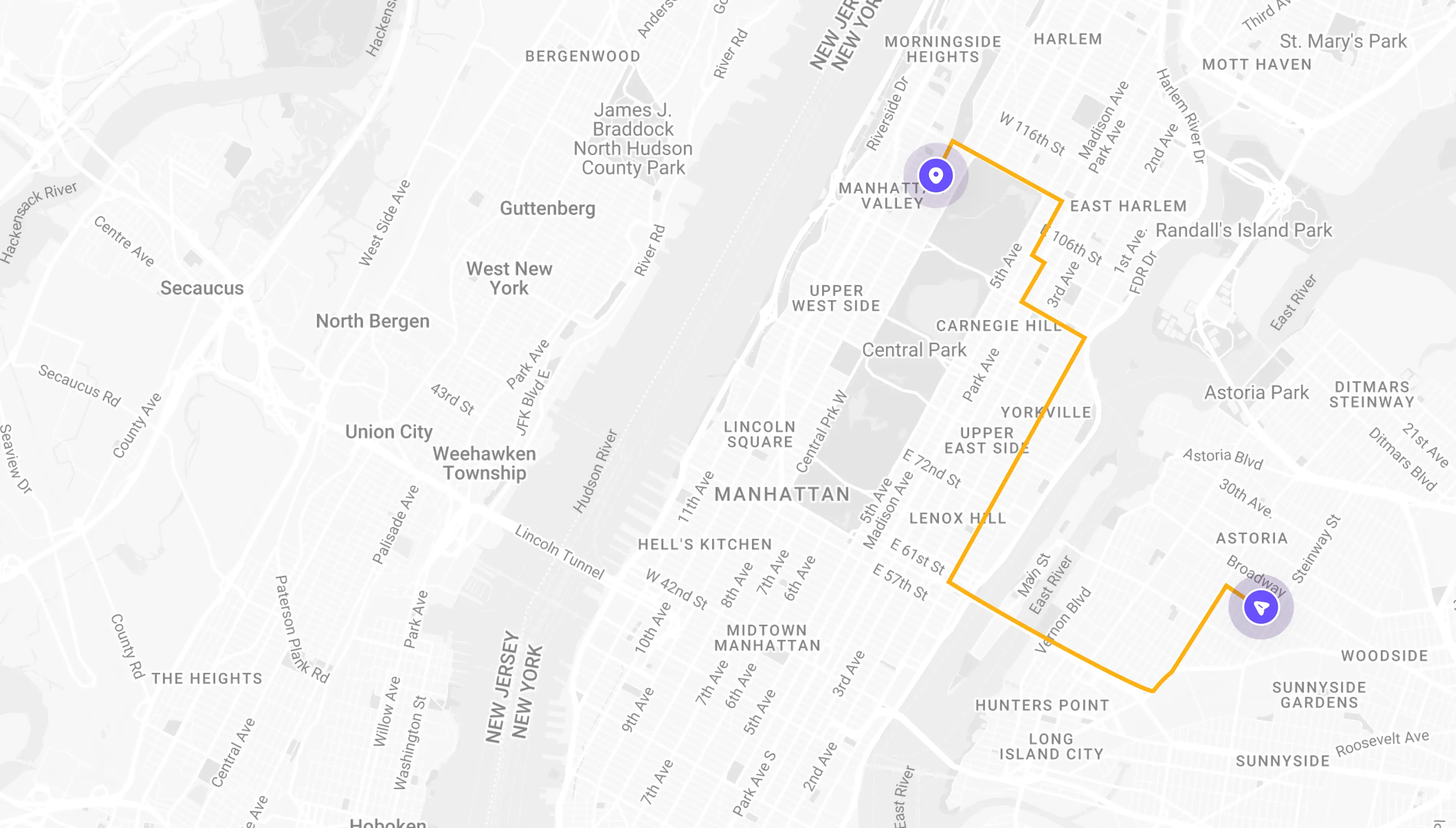Get Treatment for Poison Ivy Online
Ease the itching and rash caused by poison ivy. See an online doctor for fast treatment and relief tailored to your symptoms.


Available in 50 states. Insurance accepted.
Fast
virtual visits
24/7 care
assistants
Prescriptions
as needed

24/7 Personal Care
Consult with a physician in 15 minutes, refill an Rx or chat with our care assistants.

Affordable & Convenient
See your cost upfront and get treatment for hundreds of different conditions.

Insurance Accepted
We accept most major insurance plans, making healthcare easy and affordable.
See If Delivery Is Available Near You
Delivery Not Available
Enter your ZIP code to check if prescription delivery is available in your area and how soon your meds could arrive.
How to get started
Choose your doctor, start a virtual visit, and have your prescriptions sent to your preferred pharmacy for pickup — all in just a few easy steps.
Choose a doctor
Choose a physician by availability, specialty, ratings, and more.

Start your video visit
Connect with a doctor in minutes on a secure video call.

Get your prescription
Pick up your meds or have them delivered in as little as an hour.

Available in 50 states. Insurance accepted.
One-Time
Physician Visit
One-time visit with a physician for diagnosis, treatment, Rx, labs, referrals, and doctor’s notes.
Accepted Insurances
See why people turn to DrHouse...
As seen in

Poison Ivy Treatment Online
Poison ivy is a common plant found throughout the United States, known for causing an itchy, blistering rash upon contact.
The rash results from an allergic reaction to urushiol, an oily compound present in the leaves, stems, and roots of the poison ivy plant. Most people are allergic to urushiol, making poison ivy one of the most prevalent causes of allergic contact dermatitis in North America.
Recognizing poison ivy and avoiding contact is crucial. The plant typically features three pointed leaflets, but it can grow as a shrub or vine, often integrating into local foliage.
The appearance of the plant can vary with the seasons: it may have yellow or green flowers in the spring and white berries in the fall. Direct contact with the plant, touching contaminated objects, or even inhaling smoke from burning poison ivy can trigger the rash.
Prompt recognition and treatment are essential for managing symptoms and minimizing discomfort.
Symptoms
The symptoms of a poison ivy rash usually emerge within 12 to 48 hours after contact with the plant and can last up to several weeks. Key symptoms include:
- Itching: This is often the first and most pronounced symptom.
- Redness and swelling: The affected area may become red and swollen soon after exposure.
- Blisters: Small to large blisters can form, sometimes oozing clear fluid.
- Rash: The rash usually appears in streaks or lines where the plant brushed against the skin.
Symptoms vary based on the amount of urushiol that has contacted the skin and the individual’s sensitivity. Severe reactions may require medical attention, especially if the rash covers a large area of the body or is on the face or genitals
Diagnosing
Diagnosing a poison ivy rash is typically based on the appearance of the rash and a history of recent exposure to the plant. Healthcare providers, including telehealth professionals, can often diagnose the rash visually. During a consultation, they will ask about the patient’s activities prior to the appearance of the rash, as well as any known exposures to poison ivy.
In cases where the rash appears atypical or if the patient hasn’t knowingly encountered poison ivy, other conditions may be considered. Online consultations can be helpful for initial assessments, especially when access to in-person care is challenging.
Treatment
Treatment for poison ivy rash focuses on relieving symptoms and preventing further skin irritation. Here are several steps and strategies to effectively manage the condition:
- Immediate skin care: Rinse your skin with lukewarm, soapy water as soon as possible after contact with poison ivy to remove the urushiol oil. This can reduce the severity of the rash if done within the first hour of exposure.
- Cool compresses: Applying cool compresses to the affected area can help reduce itching and swelling.
- Oatmeal baths: Taking an oatmeal bath can soothe itching and help dry out blisters. Over-the-counter colloidal oatmeal products are specially made for bath use.
- Barrier creams and lotions: Products containing calamine or hydrocortisone can be applied to the skin to relieve itching and irritation. These should be used as directed on the package or by a healthcare provider.
- Oral antihistamines: Medications such as diphenhydramine (Benadryl) can be taken to help control severe itching. However, these can cause drowsiness, so they should be used with caution.
- Avoid Scratching: While it may be tempting, scratching the rash can lead to infection and should be avoided. Keeping fingernails short and wearing gloves during sleep can help prevent scratching.
- Protective clothing: Wearing long sleeves and pants when in areas known to have poison ivy can prevent the plant’s oils from contacting the skin.
- Education and awareness: Learning to recognize poison ivy and educating family members, especially children, can prevent exposure and re-exposure.
While these treatments can usually be managed at home, it’s important to seek medical attention if the rash covers a large area of the body, involves the face or genitals, or if signs of infection (such as increased pain, redness, swelling, or pus) develop.
Medication
In addition to over-the-counter treatments, several prescription medications may be recommended by healthcare providers to treat severe cases of poison ivy rash:
- Prescription corticosteroids: For extensive or severe rashes, doctors may prescribe oral corticosteroids, such as prednisone, which can significantly reduce inflammation and itching. These are usually used for short-term treatment to manage severe symptoms.
- Topical corticosteroids: Stronger than over-the-counter versions, prescription topical corticosteroids can be more effective at reducing inflammation and speeding up recovery. These should be applied as directed by a healthcare provider.
- Immunomodulators: In cases where steroids are not advisable or if the response to steroids is inadequate, medications like tacrolimus or pimecrolimus may be used as topical immunomodulators to suppress the immune response and reduce inflammation.
- Antibiotics: If the rash becomes infected, which can occur from scratching, antibiotics may be prescribed to treat the infection. These are typically only used when there is clear evidence of bacterial infection.
- Injections: Severe reactions might require injections of corticosteroids or other treatments, which can provide rapid relief in cases where symptoms are intense and debilitating.
- Pain relievers: Nonsteroidal anti-inflammatory drugs (NSAIDs), such as ibuprofen, can help manage pain and reduce inflammation associated with poison ivy rashes.
How can DrHouse help?
Here’s how DrHouse can assist with poison ivy treatment and other healthcare needs:
- Virtual consultations: DrHouse offers virtual consultations with licensed healthcare providers. These appointments can be scheduled anytime, including weekends, making it significantly easier for patients to receive care without the need for travel or waiting rooms. This is particularly valuable for issues like poison ivy, where timely medical advice can help manage symptoms and prevent complications.
- Prescription services: If medication is necessary for treatment, DrHouse can prescribe and manage prescriptions electronically. After a virtual consultation, if a doctor determines that medication like corticosteroids or antibiotics is needed, they can send the prescription directly to a pharmacy where the patient can pick it up. This service covers a wide range of medications, except for controlled substances and those with a high potential for abuse.
- Integrated care: DrHouse ensures continuity and consistency in healthcare management by integrating all aspects of the patient care process on one platform. This integrated approach helps in tracking the patient’s health journey more efficiently and reduces the chances of errors.
- Speed and efficiency: DrHouse is designed to provide prompt service. The platform typically allows patients to see a healthcare provider within 15 minutes, ensuring that urgent care needs are addressed quickly and efficiently.
Frequently asked questions (FAQs)
Can poison ivy rash be diagnosed online?
Yes, online doctors at DrHouse can diagnose poison ivy rash through virtual consultations based on symptoms and a visual examination of the affected area.
Can online doctors treat poison ivy?
Yes, online doctors at DrHouse can provide treatment for poison ivy rash through virtual consultations and prescribing necessary medication.
Can I get a prescription for poison ivy rash treatment from DrHouse?
Yes, if necessary, a doctor at DrHouse can prescribe medication for poison ivy rash after an online consultation. However, certain medications may not be available through the platform.
Related services
Explore more of our services tailored to your needs and discover additional ways we can support your healthcare needs.
Frequently asked questions




